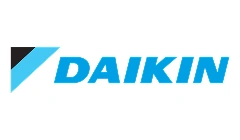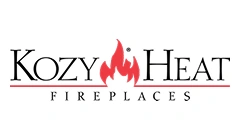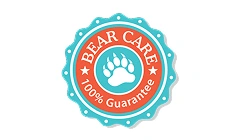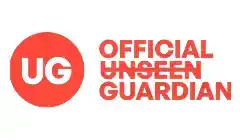When homeowners need a cooling or heating repair in Grand Forks, ND, they call Bears Home Solutions. Our company has served the region since 1978, and we deliver reliable and cost-effective repairs.
We help area households improve their indoor air quality in Grand Forks. You can count on us for seasonal maintenance that saves money and prevents HVAC problems. If you have an older system, our experts can upgrade your home with a new heating or AC installation in Grand Forks.
Contact Bears Home Solutions at your convenience with any questions about scheduling a cooling or heating repair in Grand Forks.
Why Grand Forks Homeowners & Businesses Choose Bears Home Solutions
Our company has over 45 years of HVAC experience throughout Grand Forks County and beyond. We partner with the top brands for heating and cooling installations and service all brands and models. We provide same-day service calls for urgent issues and have technicians on call 24/7 for emergencies.
Choose us for HVAC services in Grand Forks, ND:
- Licensed and insured
- NATE-certified HVAC technicians
- Licensed master plumbers on staff
- Our Bear Care 100% guarantee
- Grand Forks Herald Best of Award
Comprehensive HVAC Services for Grand Forks’s Climate
Our goal is to help you be more comfortable and breathe easier while saving money. That begins with maintaining clean and well-functioning HVAC equipment. We recommend scheduling annual maintenance for your heating and air conditioning in the Grand Forks area. Most warranties stipulate it, and it will lower your short- and long-term heating and cooling costs.
Watch your systems year-round, even with regular maintenance. Schedule diagnostics as needed. Check for common issues like irregular cycling, uneven air distribution, and problems with power or fuel.
Our HVAC services include:
- Aeroseal duct sealing
- Indoor air quality testing
- HVAC UV light installation
- Air purifier installation and service
- Thermostat installation and service
- Emergency heating and cooling repairs
- Ducted heating and cooling installations
- Ductless heating and cooling installations
- Fireplace installation, maintenance, and repair
- Humidifier and dehumidifier installation and service
- Seasonal HVAC maintenance and service agreements
Upgrade to a Heat Pump
If you’d like to upgrade your older HVAC equipment, we offer a range of options from the top brands. Homeowners with furnaces and boilers can upgrade to high-efficiency models that can lower fuel consumption by 10% or more. Our customers can opt for heat pumps as an alternative to air conditioning in the Grand Forks area.
Heat pumps provide cooling like an AC but also deliver highly efficient heating. Our furnace service in Fargo includes installing hybrid systems. These systems combine a main heat pump with a furnace.
Indoor Air Quality Solutions
In addition to seasonal tune-ups, we recommend annual testing of your home’s indoor air quality in Grand Forks. Leaky ducts can undermine your comfort, energy efficiency, and air quality. We can correct such problems through aerosol-based duct sealing and other duct repair techniques. Our team also offers many IAQ systems for active, around-the-clock protection against pollution.
An in-duct air purifier can filter all the air in your home four or more times per hour. Those systems often have an advanced mechanical filter to trap over 99% of dust, pollen, pet dander, and other particulates.
Activated carbon provides odor control and adsorbs gases and chemicals. We can install a UV disinfectant lamp for the neutralization of bacteria, viruses, and other pathogens. We install whole-house humidifiers. They keep the right humidity in your home all winter.
The Bears Home Solutions Process
Our process begins with a consultation through which you can assess your needs and equipment and answer any questions you have. If you need a repair, we’ll explore the different solutions with you and weigh initial versus total costs.
If you need an installation, we’ll discuss equipment options, add-ons, and energy incentives. We’ll also perform a custom load calculation, so your new equipment is the perfect size for your home.
The Trusted HVAC Pros
We’ll complete most repairs during that same visit. For installations, we’ll set a date and time convenient for you and arrive on time. Our technicians and plumbers maintain clean and safe work areas at all times. Once we’ve installed or repaired the equipment, we’ll calibrate it and perform extensive testing. For installations, we’ll handle the code-compliance inspection with the local official. We’ll provide consumer education, such as how to program a thermostat and what you need to know about your warranty. Finally, we’ll do a walkthrough with you to ensure your complete satisfaction, and we’ll never leave a mess behind.
Our refined and personalized approach will:
- Help you make informed decisions
- Lower your short- and long-term costs
- Provide you with confidence in our services
Customized HVAC Maintenance Plans for Grand Forks Homes
The most common reason homeowners skip seasonal maintenance is that it slips from their minds. That’s one of the reasons we encourage our customers to join one of our maintenance plans. We’ll provide reminders and help you schedule in advance of the upcoming season.
Membership for HVAC systems includes a fall heating tune-up. You can also choose a spring cooling tune-up if you’d like. Members get priority service year-round, meaning that if your system needs urgent attention, you move to the head of the line. We provide discounts for all dispatch fees and a 15% discount on all repairs and accessory installations.
Our plans are customizable, and your membership can extend to your fireplaces and plumbing system. That includes water heater maintenance and a discount on any plumbing installations. You’ll also receive loyalty discounts for heating and AC installation in Grand Forks that will grow over time.
We offer a range of plans to meet the needs of different customers:
- Bronze HVAC plan
- Bronze fireplace plan
- Bronze plumbing plan
- Silver HVAC plan
- Gold HVAC/plumbing plan
Schedule HVAC Services in Grand Forks, ND
You can reach us anytime if you need immediate AC or furnace service in Fargo or Grand Forks. We offer convenient online scheduling for all other appointments. Our company often has money-saving promotions available, which you can see listed online. For installations, we offer no-obligation consultations, free quotes, and financing on approved credit.
Bears Home Solutions is the local and trusted choice for cooling and heating repairs in Grand Forks. Call today or contact us online to schedule your appointment.















